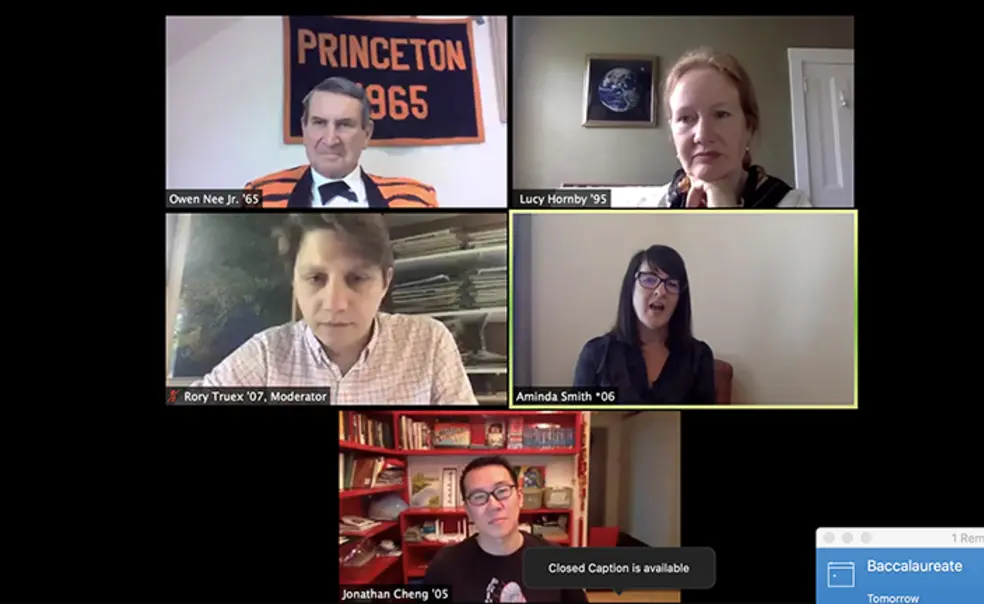Forums During Reunions Tackled Trust, Divestment, and More
Despite this year’s virtual format, the number of Alumni Faculty Forums offerings was about the same as a typical year. The programs were sometimes presented as Zoom webinars, sometimes as Zoom calls, with audience participation and questions handled in the chat box. According to Deputy Vice President of Alumni Engagement, Alexandra Day ’02, alums widely praised the online offerings and expressed a desire for them to persist even in non-pandemic years. (The Alumni Office is considering its options.)
PAW staffers covered the events from their homes. The following is a synopsis of a few Reunions-weekend offerings.
In a forum called “Trust: A Tie That Binds” moderator Jason Meyer ’80, owner of an education consultancy and a law firm, said current crises from the death of George Floyd to the coronavirus reflect a breakdown in the trust society usually relies upon.
Marc Fisher ’80, a senior editor at The Washington Post, said although there are record low levels of trust in political, religious, and other institutions, there’s “almost unchecked” trust in other things, like Uber — which relies on strangers to rideshare. “There’s really a revolution of trust occurring,” and it’s in different directions, Fisher said, adding that times of crisis provide an opportunity to forge a connection through a common humanity.
In a panel hosted by activists working to push Princeton to divest its financial holdings from fossil fuels, panelists Robert Massie ’78, a veteran climate activist, and Rebecca Goldburg ’80, director of environmental research and science for Pew Charitable Trusts, compared the movement to the one that pushed for divestiture from South Africa, which helped to end the Apartheid.
“University actions [to divest in South Africa] made clear that Apartheid was ethically unacceptable to major institutions and not just to students and other protesters,” said Goldburg, who, along with Massie advocated for the South African divestment during her student years.
Massie said that yields from coal and natural gas holdings have been in steady decline over the past decade, pointing out the dubious yields from such holdings. He next took on the University’s assertion it cannot divest from the fossil fuels when it still relies on the fuels to operate and cooperates with the industry in research. Calling it “an ethically incoherent argument,” Massie said it suggests “ ‘these problems are so big, and we can’t get free from them, so we do nothing.’ … It’s the opposite of what we’re supposed to conclude about our responsibilities, especially those of us with the privilege to have a liberal arts education.”
Other panels took on timely topics such as the growing global influence of China and our relationship with the country, a decarbonization fantasy draft, and how American political polarization has had a stultifying effect on our economy, our position as a world leader, and amid the pandemic, on public health.
But, keeping with tradition, there were lighter offerings as well including Qi Gong, a 5k “group” run where alumni were encouraged to post their orange-and-black running attire to social media, and a trivia contest. Robby George, best known as a conservative legal scholar and Princeton’s McCormick Professor of Jurisprudence, showed another side when he joined Tony Trischka, a master of bluegrass, for a Zoom seminar on the history of banjo music. While Trischka is a renowned banjo player with 16 albums under his belt, George showed he could pick and strum with the best of them. The session included memorable banjo performances, including a unique rendition of “Old Nassau.”










No responses yet